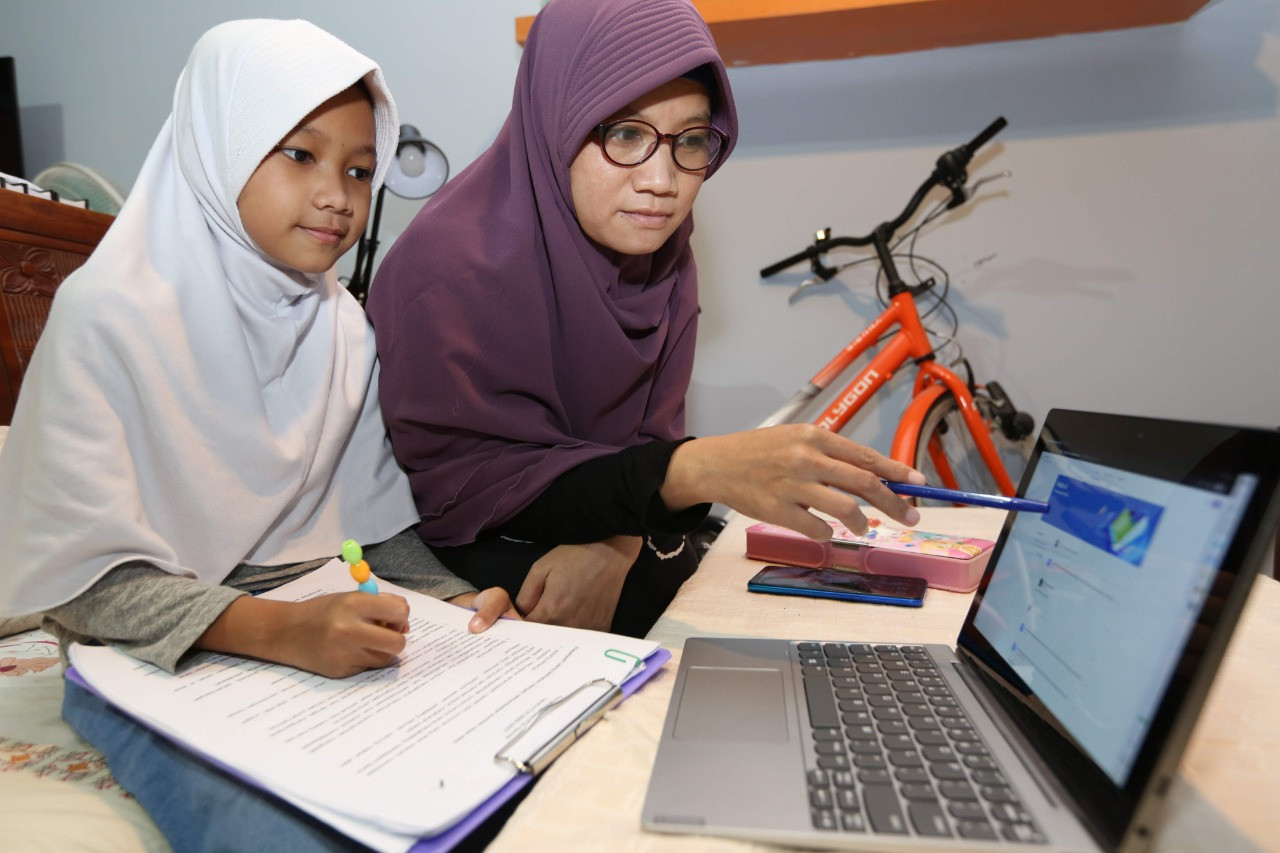Popular Reads
Top Results
Can't find what you're looking for?
View all search resultsPopular Reads
Top Results
Can't find what you're looking for?
View all search resultsWhy are schools still closed in Indonesia?
It is about time that schools reopen, before our children fall even more behind in their studies and development.
Change text size
Gift Premium Articles
to Anyone
I
t has been a year since schools were closed due to the COVID-19 pandemic. Now, it is about time to open the debate on when and how in-class learning can resume. Addressing the issue is important for our children, and for the country‘s economy.
Nobody could have imagined a year ago that the school closure would last this long. But here we are. Schoolchildren have remained unable to study in classrooms and interact with their friends and teachers. There is an indication that schools might reopen in July, but who knows if this will happen?
Most businesses appear to have returned to normal recently. Shopping malls, traditional markets, restaurants and other places have welcomed back customers, although with certain restrictions. Meanwhile, the number of daily infections has dropped markedly in the last few months, indicating that the many good measures have been effective in containing the virus.
On top of these virus containment efforts, mass vaccination has been underway since Jan. 13 and is now inoculating teachers.
Despite the progress, school reopenings are unlikely to happen anytime soon, and this is likely to have many consequences, not only for children but also the Indonesian economy for many years to come. The longer the schools remain closed, the greater the problems and consequences will be.
Various studies predict that school closures will have a decisive effect on the economies of nations for a very long time. The Organisation for Economic Cooperation and Development (OECD), for example, has estimated that students in grades 1-12 affected by the closures might expect 3 percent lower incomes over their lifetimes. The loss in income is likely to be much higher among disadvantaged students. For nations, long-term growth related to reduced incomes might yield an average loss of 1.5 percent in annual gross domestic product for the remainder of the century.
Other studies indicate that prolonged school closures could also lead to reduced life expectancy.
A Unicef survey conducted in mid-2020 discovered that two-thirds of 4,000 student participants from Indonesia’s 34 provinces said they did not feel comfortable with at-home learning. Meanwhile, nine in 10 students wanted to go back to school and were willing to wear masks and follow the health protocols while in school.
Some are afraid that reopening schools will only expose children, as well as their parents and other family members, to a greater risk of COVID-19 infection. This is very understandable; no one wants to increase the risk of getting COVID-19.
However, many studies have found indications that reopening schools does not necessarily lead to virus transmission or worsening the pandemic.
The European Centre for Disease Prevention and Control states that children are not the primary drivers of the pandemic. It also cites evidence that reopening schools does not increase the number of COVID-19 cases if the appropriate measures are in place.
Schools are critical for the mental health of children and of course, for their education. Even though online learning programs are in place, this method of studying is not the same as learning in classrooms in person.
Online learning poses a huge challenge to children, especially those from poor families. Not all parents have the resources to help their children follow and adjust to online learning. Some cannot afford mobile phones or an internet connection. For these children, their learning will drop and they will lag behind their peers.
The government’s recovery measures should give priority to children, rather than focusing merely on the economy. After all, children are an asset worth prioritizing and a very important part of the economy as a whole.
So, why are Indonesia’s schools still closed? Why haven’t we at least seen a clear plan on how and under which circumstances to reopen schools? July is now said to be when schools will reopen, but the same had been said of January.
It is about time that schools reopen, before our children fall even more behind in their studies and development. It is important to allow children to return to school, for their wellbeing as well as to protect their future.
***
The writer is a mother of two school-aged children.










